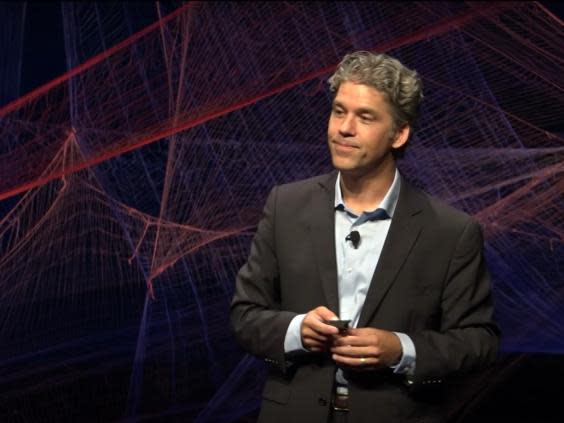Musician uses algorithm to generate every possible melody to prevent copyright lawsuits

A musician and lawyer has used an algorithm to generate every possible melody in an attempt to end music copyright lawsuit claims.
Working with programmer Noah Rubin, Damien Riehl built software capable of generating 300,000 melodies each second, creating a catalogue of 68 billion 8-note melodies.
The melodies were then copyrighted and released into the public domain in the hope of stifling litigious musicians.
Citing famous examples of music copyright infringement lawsuits, Mr Riehl said his motivation was to demonstrate that the number of possible melodies is finite and therefore liable to patterns being repeated unintentionally.
This was the case when George Harrison was sued for allegedly stealing the melody of My Sweet Lord from He's So Fine by the Chiffons, according to Mr Riehl. The litigation lasted for nearly three decades, during which the former Beatle was found guilty of "subconscious plagiarism" by a US judge.
More recently, singer Sam Smith was forced to settle a copyright dispute with Tom Petty over the apparent likeness between his Grammy-winning song Stay With Me and Petty's hit I Won't Back Down.
Smith claimed he had never heard Petty's song, nor the three-note descending melody in the chorus that he was accused of stealing. The UK musician's representative at the time said the likeness was "a complete coincidence" but an out-of-court settlement saw Petty credited as co-writers of the track.

The melodies created by the algorithm were stored in MIDI form onto a small hard drive, which now contains "every melody that's ever existed and ever can exist".
"The copyright system is broken and it needs updating. Under copyright law, numbers are facts, and under copyright law, facts either have thin copyright, almost no copyright, or no copyright at all" Mr Riehl said in a recent TedX Talk explaining the project.
"So maybe if these numbers have existed since the beginning of time and we're just plucking them out, maybe melodies are just math, which is just facts, which maybe are not copyrightable."
The algorithmically-generated melodies have been placed online with the intention of expanding the catalogue to include more notes and chords in the future.
The system is yet to be put to the test in a court of law but Mr Riehl hopes the catalogue of billions of melodies will end accidental copyright infringements and give songwriters "more freedom" to create music.
"No song is new. Noah and I have exhausted the data set," he said. "Noah and I have made all the music to be able to allow future songwriters to make all of their music."
Read more
Reddit’s ‘No Sleep’ goes dark in protest at copyright infringement

 Yahoo News
Yahoo News 
